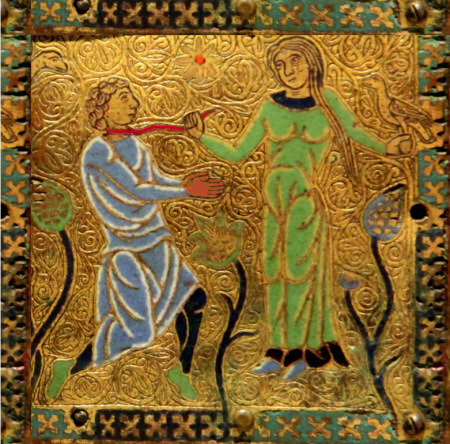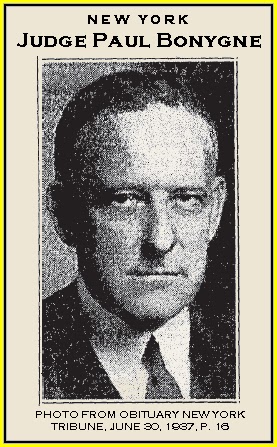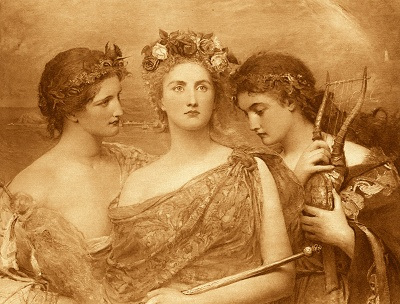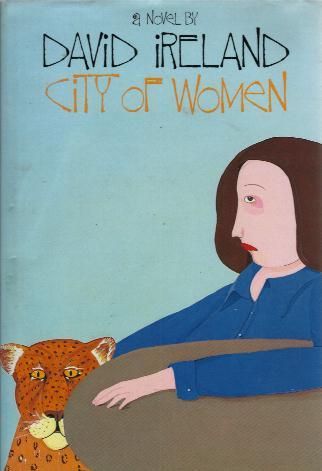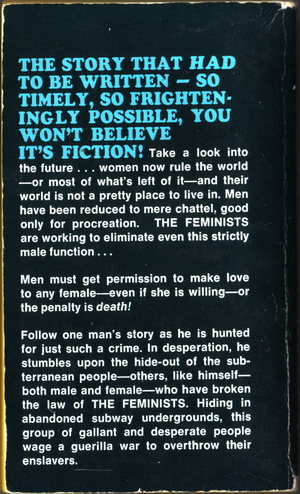
By Peter Ryan
In my previous article “Perversions of gynocentrism”1, I discussed the void of respect for men and boys. We live in a culture that does not respect the male half of the human race. To call this truth out is to attract the ire of feminists and be labelled a whinger and a misogynist that is just angry his supposed “privilege” has been taken away. The contempt that our gynocentric society has for men and boys is a forbidden topic to discuss.
This hostile reaction to discussing men’s issues and their well-being and labelling any men that discusses them a whinger, is not just seen from feminists. It is also expressed from a substantial number of men and women in society. It is an ugly reality of human nature that people do not like to confront their own bigotry and when they are confronted, it generally elicits a hostile response. The reality is that the misandry that feminism vomits out into society, is just a symptom of a much more deeply rooted problem in our culture.
Men and boys cannot read a newspaper, watch television, go online, listen to the radio, go to work, or to college or school, or even socialise with their peers, without being regularly bombarded with hateful and bigoted messages that there is something inherently toxic about them or wrong with them because they happen to be male. There is a feminist campaign of psychological warfare directed at men and boys. Tom Golden has compared it2 to the communist brainwashing of political dissidents in China and made a compelling argument feminists are using the same techniques.
In my article “Diagnosing Gynocentrism”3, I discussed how gynocentrism is associated with a belief in female superiority. This belief holds that women and girls are naturally and inherently superior to men and boys based on being female. This belief emerges from two attitudes. There is an underlying attitude that masculinity is inherently flawed and that masculinity is toxic, violent, predatory, destructive and primitive. There is also a corresponding attitude that femininity is flawless, pure, peaceful, empathetic, life-giving and civilised. Gynocentric slogans like “women civilise men”4 and feminist terms like “toxic masculinity”5, are just two expressions of this same belief system. Female superiority is a belief system that leads to the dehumanisation of men and boys and the deification of women and girls.
Within one week of me publishing “Perversions of Gynocentrism”, the American Psychological Association released their guidelines on dealing with men and boys, which pathologises traditional masculinity. Ex-Navy Seal Jocko Willink, has written a brilliant article debunking this nonsense6 and I highly recommend people take time to read it. Numerous psychologists such as Dr. Gad Saad7, Dr. Shawn Smith8 and Dr. David Ley9 in Psychology Today, have strongly criticised these guidelines and the demonisation of masculinity and the feminist ideological bias within them. A few days later, Gillette releases their new ad10 on how men need to reform themselves and evolve past their primitive, violent and predatory ways (because apparently all men in general are now represented by the actions of a handful of predatory, backwards and violent men). These examples of demonising men and masculinity are nothing new. This has been going on for decades.
Where I live, we have government funded man-bashing ads on TV on a regular basis11, holding men in general collectively responsible for domestic violence. If one woman is murdered by a man, the media are quick to collectively hold all men12 as sharing responsibility for their death. There is of course no discussion of female violence toward men. This is despite the abundance of research available13 that shows it is hardly a tiny fraction of domestic violence, but actually a substantial portion of it.
There is of course no collective blame directed at women in society for the actions of individual women that commit child abuse and physically attack their male partners. There should not be either, because all women and all men are not responsible for the actions of individual men and individual women. Of course this is understood when we look at female violence toward men and children, but not in the case of male violence toward women and children. That is just one gynocentric double standard that helps keep reinforcing the bigoted attitudes we have about men and women, which in turn drives the belief in female superiority.
Man bashing ads are like grains of sand on the beach. Books14and research papers15 have even been written on how pervasive the negative portrayal of men and masculinity is in this culture. The institutionalisation of misandry is also widespread in our society. Misandry is present in our political system, our universities, our family courts, our legal system, our schools, our universities, our corporations, our mainstream media and our government departments. It is in our policy, in our laws, in our news, in our entertainment, in school and university syllabus and academic scholarship and it is increasingly invading our personal spaces and social interactions.
None of this is new. What is new is the level of outrage the Gillette ad has generated. 2019 will mark the ten year anniversary of A Voice For Men. Ten years ago the Gillette ad would barely have created a ripple. There would have been some criticism, but hardly to the level we are presently seeing. This change in societal attitudes is a new phenomenon and an emerging trend. People have finally had enough. People are starting to notice the impact of what disrespecting the male half of the human race has in their own lives and they are recognising the true face of feminism. We have a long, long way to go, before we unlearn centuries of gynocentric programming. We are however starting to see society question the cultural narrative that something is inherently flawed about masculinity and also feminist ideology.
I did leave a comment on the Gillette ad. I responded as follows:
“Is this ad the best a man can get? Imagine if this ad generalised all black people or all women by the actions of a few individuals. Would such bigotry even get past production and be released? So why is it suddenly ok to generalise the male half of the human race by the actions of a few men? This is wrong. It is not “some” men doing the right thing, it is actually most men. Inspiring men to do better, requires respecting men to begin with. Seeing the worst in men and using shame and guilt to inspire them to do better, just creates the understandable level of hostility we see toward this ad. Men are not toxic, this message and messages like it are toxic. Inspiring men to do better, requires portraying a positive image of masculinity to your audience and not deriding them. Such simple logic.”
Predictably feminists attempted to gaslight me. That is their predictable (all so predictable) response when they get challenged on their own double standards. There is nothing wrong with what they are doing, it must be me and the million or so other people like me that expressed a problem with the ad. Not in one instance in the replies under my comment, did feminists answer my question about whether this ad would have even got past production if it had of portrayed black people or women in this way.
Gillette would have us believe “some” men but not most men, are doing the right thing by others. It is implied through omission that the majority of men need to reform themselves. The ad clearly exploits a perceptual bias called anchoring16, to set the perceptual frame in the viewers minds right from the beginning, that men in general are to be found guilty for the actions and behaviour of a handful of predatory and violent men. Then it proceeds to lecture men from a morally self-righteous position, on what men should be doing to redeem themselves. I will ask the question again, would feminists approve of this ad if an ad like this was made about women? I think we all know the answer to that and their silence to that simple question is deafening.
Feminists were predictably quite quick to obfuscate an examination of their own double standards and bigotry, by accusing people of having a problem with men acting like decent human beings, or even going as far as insinuating that I was somehow one of those toxic men portrayed in the ad. This is the predictable game feminist ideologues play- They set the bait to elicit anger from men, there is an angry reaction from men and then they frame themselves as victims of male aggression. It is all in your head, there is something wrong with you etcetera, etcetera. Gaslighting is a preferred tactic by feminists. But the central question that I asked still remains unanswered. Would these same feminist ideologues be perfectly fine with a comparable video being made about women? Indeed people have noted that double standard and have produced such videos17.
Men and women do not have a problem with the message of men acting like decent human beings. They do have a problem with an ad framing men in general as violent, primitive, predators and that only “some” men are doing the right thing. They do have a problem with an ad that takes such a pompous and morally self-righteous position to judge and shame it’s male customer base and then dare to lecture them on how they should behave. The ad like most feminist inspired ads, is dripping with condescension toward men18.
Paul Elam did an excellent response to the ad linked here19. I also left a comment on that video as follows:
“When I wrote about there been a void of respect for men, I was not saying that as a minor footnote. We live in a society that is so gynocentric it pathologises the very type of men and masculine traits it depends on to exist. They say fish rots from the head and it certainly does. This ad is nothing new, just more of the same. The misandry in ads has been going on for decades.
Feminist ideology is the religion of the corporate kleptocracy we live in. The steady progression of this toxic ideology through our public institutions and businesses, is the product of decades of general apathy from the public toward the well-being of men and boys. Society gave feminism the green light to demonise and dehumanise men and boys and marginalise them in the name of equality decades ago. Business executives and politicians go along with it because society mostly does not care and has shown zero concern for decades. Is anyone going to protest outside their HQ? Is anyone going to make a formal complaint or take legal action over this ad? Is this really going to lead to any serious and long-term boycott of their products? Is there going to be any real tangible consequences for this business and any well organised movement to pushback against this misandry?
There were many ads, articles, books and shows like this before and most people said nothing. Only now is the rotten stench of feminism starting to bother people.
You reap what you sow. This will continue to worsen until people confront and correct their own gynocentric programming. Exactly how bad the stench of feminism needs to get before that occurs, depends on how much people are willing to suffer for their own gynocentric stupidity. The moral laziness of society toward gynocentrism is really to blame, not a business that just reflects the fashionable bigotry of the day. Look in the mirror people.”
One year ago there was another video that attracted similar levels of controversy. Does anyone care to guess what it was? It was the Jordan Peterson interview with Kathy Newman on Channel 420. So you were saying? So you were saying? So you were saying? Remember? Strawman, gaslight, strawman, gaslight. Precisely the same feminist tactics of painting men as villains and portraying themselves as victims, was on full display a year ago from that interview and in its aftermath. Just like now, there were millions of people that heavily criticised that interview. The cycle of misandry repeats itself over and over again each year and it will continue to escalate.
So my question to people is what are you going to do now? This is not a new problem. I can pretty much guarantee with certainty that the bigotry and contempt that our feminist controlled society has towards men, is going to keep continuing and keep escalating. You can expect more ads like this. What we are presently facing is not something that just grew overnight. The demonisation and the marginalisation of men and masculinity, has been going on for decades. It was the apathy and the indifference of the general population to what feminists were doing then, that allowed the pervasive misandry in our society to be normalised by feminists and grow to the point we are observing today.
I want people to really think about how deeply entrenched the hatred of men would have to be in our society, for the American Psychological Association to come up with their feminist inspired guidelines toward treating men and boys. I went through multiple examples in “Perversions of Gynocentrism”, on describing the world we now live in and how they illustrate a void of respect we have for men and boys. It is not hyperbolic for me to say that if I replaced men with Jews in some of the hateful content coming from our feminist media, academics and politicians, it would not look at all out of place in Nazi Germany. Could you imagine the outrage if the Washington Post article, “Why Can’t We Hate Men?”21 was written about Jews? Antisemitism is reprehensible and so is misandry. The fact you can write such hateful drivel about men in a major mainstream media publication, goes to show you just how depraved our society has become.
To get to this level of feminist depravity and hatred towards men in society, the general population had to be apathetic and indifferent enough to the well-being of men to permit it. That is the disgusting truth that no one wants to acknowledge. Even a substantial number of antifeminists will stop short of examining the reasons why feminists have been so successful in implementing their agenda, with next to no resistance from the population. All of these mothers and fathers with sons did nothing for generations, while feminism gradually infected and then spread through our institutions, companies, politics, media, legal system and public and private organisations. Despite the massive outcry over this one ad that goes for less than 2 minutes, the concern and outrage from the public over a multitude of far more serious examples of systemic and institutional misandry in society, is relatively little.
Men and boys are far behind girls at every level of education from kindergarten to postgraduate education. They have been struggling academically for decades in a feminist controlled education system that prioritises women and girls learning needs and avoids and silences any attempt to address this imbalance. Young men have seen their rights to due process eliminated on college campuses and their lives ruined from false allegations, thanks to biased feminist university policies and kangaroo tribunals. Husbands and fathers face severe bias in the family court and divorce process and many of them lose everything- wife, kids, house and sometimes their lives. Countless fathers are killing themselves on a regular basis from being alienated from their children. Men are now facing a social climate thanks to metoo# and changes to the legal system, where a woman can virtually point the finger at a man and based on an unproven accusation from more than 20 years ago and with no trial, the man can have his life destroyed. The list goes on and on.
Many of these problems have been around for decades and they are systemic in nature and have impacted millions of men and boys. The silence from our society to these issues has been deafening, because mostly no one cares. Like I said, the Gillette ad that went for less than 2 minutes, got more attention in one week than any of those men’s issues I just mentioned have gotten from society in twenty years! If these things were happening to women, we would be up in arms and there would be a revolution. The indifference to the suffering and marginalisation of men and boys, is a readily observable feature of society. This is the gender empathy gap22.
It is a stark and surreal claim to talk about men being privileged in a society that bends over backwards on every occasion to cater to feminist demands to prioritise female well-being (even to the point of spending money on stopping “manspreading” on public transport), while at the same time shaming and ostracising men and boys and showing such indifference to their suffering. So whilst I am glad to see the reaction to the Gillette ad, that reaction is just a blip on the radar screen. In contrast the reaction from society in general toward the systemic misandry within it, has been one of silence, indifference and in some cases encouragement. If people want to see real change, then that will have to change.
Feminism has been able to spread through the public and private sectors of our society with ease, because our leaders have correctly perceived that they will receive greater consequences from feminists for not going ahead with the feminist agenda, than from the general public if they do. Politicians will gladly parrot feminist talking points on domestic violence for example, because they know the attacks they will get from feminists in the media and elsewhere if they do not, will be orders of magnitude more detrimental to their political careers, than the consequences they will receive from the general public by doing so. I noticed Stardusk has raised this very same point in relation to his response to the Gillette ad23 and also emphasised the importance of saying “no” to these feminist ideologues. It is the same situation in any big organisation that feminists infest.
Our society has been slowly rotting away from the inside year after year and decade after decade, from the slow and gradual feminist subversion of our institutions, academia, media, legal system, political system and corporations etc. The feminist capture of the universities has been essential to feminisms spread throughout society, ensuring that our future politicians, policy and law makers, business professionals, mental health professionals and educators, are thoroughly indoctrinated in feminist ideology and go on to work at senior levels where they can spread feminist ideology within the private and public organisations they work for.
In many ways modern society today resembles a termite infested house. The feminist infestation has gone by unimpeded for decades and now suddenly the damage is starting to appear on the surface. What people need to realise is the Gillette ad is just the tip of the iceberg of this problem. We now have a situation where the public and private sectors of our society, blatantly express the female supremacist values of feminist ideology and the general population is disgusted by what it sees. But what the general population is disgusted by, is really just a reflection of its own gynocentric double standards. All that was required for this to occur, was for people to remain indifferent to male-being for long enough to let feminism implement their agenda and entrench themselves in our institutions and corporations etc.
In “Perversions Of Gynocentrism” and “The Normalisation Of Gynocentrism”24, I explained at a social and cultural level how the spread of feminism and gynocentrism has been achieved. Gynocentrism is at the heart of the pervasive misandry we are observing today and feminism is merely a political manifestation of gynocentrism. We are not going to overcome feminism by simply limiting our focus to criticising feminist ideology. We have to ask serious questions about why society has been so easily overtaken by feminism. We have to confront our own apathy toward male well-being. We have to confront our pedestalisation and deification of women and girls. We have to confront our own gynocentric programming and how that programming taps into basic sexual and emotional drives and short-circuits them. If we are not prepared to confront our own gynocentrism, then feminism will continue to degrade our society until it inevitably collapses from a fempocalypse25.
Only if society cares enough about male well-being to react in a manner that leads to serious consequences for our politicians, businesses and academics etc to lead them to change their ways and resist feminism, will we see any change. Until then it will remain business as usual and feminism will keep on escalating the misandry in our society. Feminism has had several decades to infest every branch of society and has a great deal of political and financial momentum behind it. Feminism will not be defeated by a single protest or a single boycott or a single march or a single legal battle. It is going to take a sustained effort on multiple fronts to remove the decades of feminist rot in our society. It is going to take a society prepared to rise above its own gynocentrism and its one-sided concern for only female well-being, to generate a strong enough response to defeat feminism. Half measures will not be enough. If people truly have had enough of misandry like the Gillette ad, then we have to go the whole way and question our own double standards that prioritise female well-being and ignore male-being.
The gynocentric seeds of our own destruction bore the fruit of feminism. Feminism is just an extension and a reflection of our own bigotry. We have an underlying belief in female superiority embedded in our culture which we do not want to look at, because we do not like the reflection that stares back at us. We have bigoted attitudes toward men and toward women engrained in our culture. The women are wonderful effect26 and the female in-group bias27, are real measurable phenomena in our society and are the subject of scientific enquiry. We need to unlearn those attitudes. Men are not collectively responsible for the actions of mass murderers and serial rapists. Women and girls are not all sugar and spice and men and boys are not all primitive violent Neanderthals. The notion of women and children first and the complete disregard for male well-being, is indefensible in a modern developed society where women enjoy the same rights as men.
The underlying belief in female superiority that has gradually been embedded in our gynocentric culture and the attitudes it is based upon, need to be confronted and eradicated. Masculinity is not toxic, these gynocentric elements of our culture are toxic.
References:
[1] https://www.avoiceformen.com/feminism/perversions-of-gynocentrism/
[2] https://www.youtube.com/watch?v=-wSZVm7PXlM
[3] https://www.avoiceformen.com/gynocentrism/diagnosing-gynocentrism/
[4] https://www.youtube.com/watch?v=ZR9FHKKbMZo
[5] https://www.youtube.com/watch?v=O0zQf5NMG8E
[6] https://www.foxnews.com/opinion/former-navy-seal-jocko-willink-toxic-masculinity-the-dichotomy-of-being-a-man
[7] https://www.youtube.com/watch?v=1jCSUgBFLV8
[8] https://www.youtube.com/watch?v=WO93hW_uVao
[9] https://www.psychologytoday.com/au/blog/women-who-stray/201901/psychologists-issue-controversial-report-masculinity
[10] https://www.youtube.com/watch?v=koPmuEyP3a0
[11] https://www.youtube.com/watch?v=ukaj9lnctw0
[12] https://www.youtube.com/watch?v=vlxnIcBdgYQ
[13] https://domesticviolenceresearch.org/domestic-violence-facts-and-statistics-at-a-glance/
[14] https://www.amazon.com/Spreading-Misandry-Teaching-Contempt-Popular/dp/0773530991
[15] http://www.archipelagopress.com/images/ResearchPapers/Men%20in%20Media%20Paper.pdf
[16] https://en.wikipedia.org/wiki/Anchoring
[17] https://www.youtube.com/watch?v=Wv0bHWpGVdk
[18] https://www.youtube.com/watch?v=qFO4xvnv_DM
[19] https://www.youtube.com/watch?v=O8pBNOi5QaQ
[20] https://www.youtube.com/watch?v=aMcjxSThD54
[21] https://www.washingtonpost.com/opinions/why-cant-we-hate-men/2018/06/08/f1a3a8e0-6451-11e8-a69c-b944de66d9e7_story.html?noredirect=on&utm_term=.6810de56d333
[22] https://www.youtube.com/watch?v=MKJ8x9ut1hU
[23] https://www.youtube.com/watch?v=FfMaBqIroXQ
[24] https://www.avoiceformen.com/gynocentrism/the-normalisation-of-gynocentrism/
[25] https://www.youtube.com/watch?v=w__PJ8ymliw
[26] https://www.youtube.com/watch?v=fhm_HZ9twMg
[27] https://www.ncbi.nlm.nih.gov/pubmed/15491274



